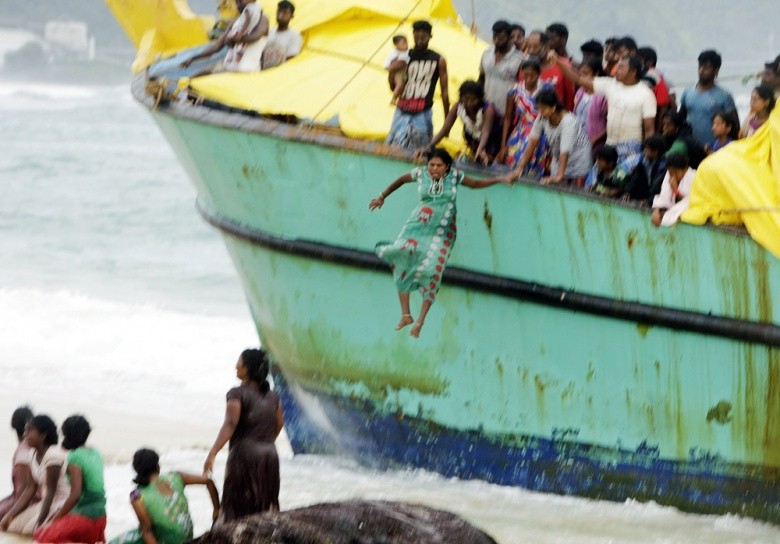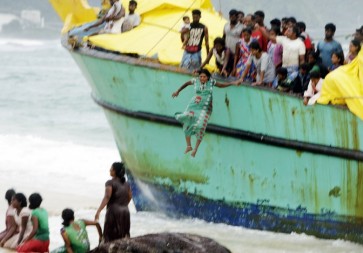Popular Reads
Top Results
Can't find what you're looking for?
View all search resultsPopular Reads
Top Results
Can't find what you're looking for?
View all search resultsIndonesia’s transformed stance toward refugees, asylum seekers
Change text size
Gift Premium Articles
to Anyone
T
he issue of refugees and asylum seekers traveling to Australia from Indonesia has long been a sensitive aspect of the countries’ bilateral relationship. To ameliorate its frustrations, Australia has actively sought to mold Indonesia’s foreign and domestic policies on this issue. However under President Joko “Jokowi” Widodo, Indonesia appears to be distancing itself from Australia and devising policy solutions independently.
In Australia, the issue of “unauthorized boat arrivals” is a divisive political issue that has continuously decided electoral outcomes since the Tampa Affair of 2001, when Australia refused entry to Norwegian cargo ship MV Tampa after it rescued 438 people, mostly Afghan asylum seekers, from an Indonesian fishing boat 140 kilometers northwest of Christmas Island.
Canberra has adopted a “tough on asylum seekers” approach, deploying policies to deter asylum seekers and deny their access to Australia. The Pacific Solution, which operated in two periods, one from 2001 to 2008 and the other from 2012 to the present, is one such policy. Under this policy, asylum seekers who arrive by boat are mandatorily detained at immigration detention centers in Australia or offshore (Christmas Island, Nauru and Manus Island) while their refugee status is determined. Additionally, it is now Australian policy that no asylum seekers who reach or attempt to reach Australia by boat without visa documentation will ever be resettled in Australia.
In contrast, Indonesia’s policies towards refugees and asylum seekers have historically been characterized by “tolerant protection”. While not party to the United Nations’ 1951 Refugee Convention and its 1967 Protocol, Jakarta allows the UN High Commissioner for Refugees (UNHCR) and the International Organization for Migration (IOM) to work within the country. This enables those seeking refugee status to have their claim processed and be resettled. According to the UNHCR, in 2018 Indonesia hosted 14,200 refugees and asylum seekers from 47 countries.
Many more live in Indonesia undocumented.
Some are detained by the Indonesian government, but most reside in UNHCR accommodation or in makeshift tents on the streets. They live in limbo, waiting up to nine years for their claims to be processed (or for an opportunity to get to Australia), while being denied the right to work and to access education, public services or citizenship.
In a bid to stem the flow of asylum seekers originating from Indonesia, Australia has effectively exported aspects of its “tough on asylum seeker” policies.


















